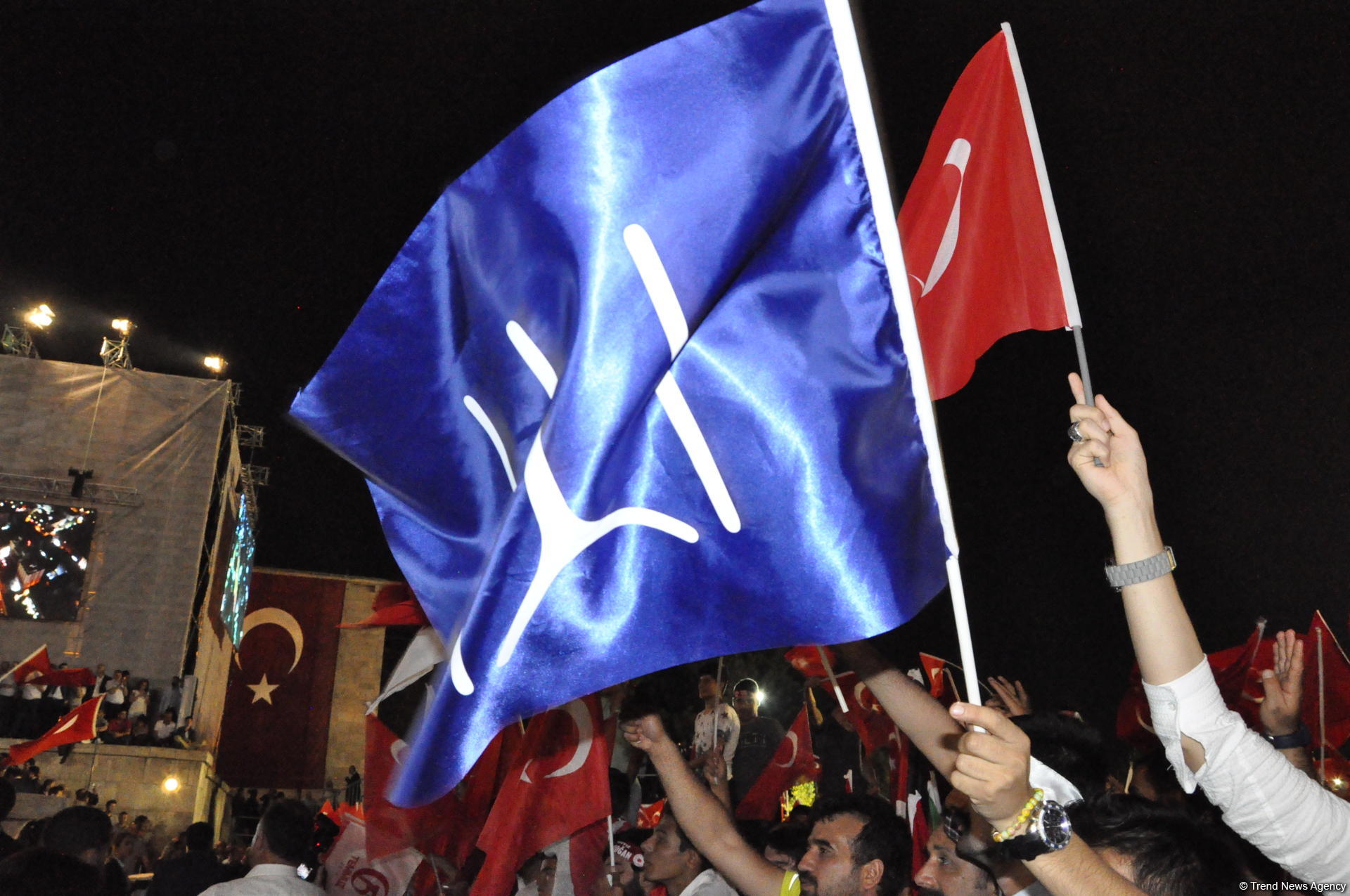Baku, Azerbaijan, Jan. 31
By Rufiz Hafizoglu – Trend:
As was previously assumed, beginning of 2018 was marked for Turkey by a number of difficult and restless events, so it's safe to say that January was a significant month in Ankara’s political life.
Which events happened in Turkey in the first month of 2018?
The Turkish Foreign Ministry accused the US of provoking protests in Iran. Beginning from December 28, 2017, large-scale rallies were held in Iran’s big cities, including Tehran, Mashhad, Isfahan and Rasht. During those rallies, 28 citizens of Iran were killed.
Of course, the whole world, including Turkey, focused on the events that took place at the end of 2017 in Iran. Turkish President Recep Tayyip Erdogan had a telephone conversation with Iranian President Hassan Rouhani after which Turkish Foreign Minister Mevlut Cavusoglu said that the US, and in particular, US President Donald Trump, is provoking riots in Iran.
This statement can be considered as Turkey’s first accusation against Trump.
US increasingly losing Turkey’s trust
The Turkish authorities have reiterated that during the military coup attempt in Turkey, the US and Western countries did not render the necessary support to Ankara.
Afterwards, Ankara demanded the US to extradite leader of Hizmet movement Fethullah Gulen, involved in a military coup attempt. However, despite Turkey’s all demands, the US has not yet extradited Gulen to Turkey.
Commenting on this fact, President Erdogan said that the agreements between Turkey and the US are losing relevance and this is connected with the fact that the US does not fulfill Turkey's demands about the extradition of Gulen.
"Turkey will not extradite a single terrorist to the US until I am in power," Erdogan said.
Erdogan's visit to France: Ankara and Paris strengthening military relations
During Erdogan's visit to France, an agreement on the purchase of long-range missiles was signed between the two countries. The military agreement was signed between Turkey’s ASELSAN defense company and Eurosam company. The agreement envisages a contract for the supply of Aster 30 Block 1 NT long-range missiles.
Historical union between Turkish opposition and ruling party
The leader of one of the biggest opposition movements in Turkey, namely, the Nationalist Movement Party Devlet Bahceli refused to nominate a candidate from the party during the presidential election in favor of the ruling Justice and Development Party.
Bahceli added that the Nationalist Movement Party will not nominate a candidate during the presidential election in 2019.
He said that the Nationalist Movement Party will support incumbent President Erdogan if he puts forward his candidacy in the election.
The presidential, parliamentary and municipal elections will be held in Turkey in 2019. As expected, the parliamentary and presidential elections in 2019 will be held on the same day.
State of emergency extended for the sixth time in Turkey
On January 8, 2018, Turkish Deputy Prime Minister Bekir Bozdag said that the state of emergency in the country will be prolonged for the sixth time. Earlier, the Turkish media wrote about the possibility of cancelling the state of emergency in Turkey in February 2018.
Turkey extends the route of the shipping canal in Istanbul
On January 15, Turkish Minister of Transport, Maritime Affairs and Communications Ahmet Arslan said that the projected length of Istanbul's biggest shipping canal was extended by two more kilometers and its total length will be 45 kilometers.
Arslan said that the shipping canal project is one of Turkey’s most important projects and this project is much bigger than the construction of the third airport in Istanbul.
The cost of construction of Istanbul Canal is preliminary estimated at 60 billion liras. The construction project received an environmental safety certificate. Turkey’s President Recep Tayyip Erdogan expressed intention to implement the Istanbul Canal project in 2011.
Signal about beginning of military operations in northern Syria
The Turkish authorities have announced the possibility of launching a new military operation in northern Syria against the terrorists of the Kurdish Democratic Union Party (PYD) and the People’s Protection Units (YPG).
President Erdogan also stressed that no one can prevent Turkey from launching this operation.
On January 18, head of Turkey's National Intelligence Organization Hakan Fidan and chief of the General Staff Hulusi Akar launched the negotiations with their Russian counterparts in Moscow.
Operation Olive Branch
On Jan. 20, Turkey’s Armed Forces, together with the Free Syrian Army, launched the large-scale Operation Olive Branch to dislodge PYD and YPG from Syria’s Afrin city.
Earlier, Turkish Prime Minister Binali Yildirim said it is estimated that about 8,000-10,000 PYD and YPG terrorists are deployed in Afrin.
F-16 planes of the Turkish Air Force inflicted air strikes on the positions of PYD on the Syrian-Turkish border within the operation. More than 700 terrorists were killed within the Operation Olive Branch and three Turkish servicemen were killed during 12 days.
Commenting on the Operation Olive Branch, President Erdogan said that after the liberation of Syria’s Afrin from PYD and YPG militants, the Turkish armed forces will also launch operations to dislodge terrorists from Manbij.
Referendum on continuation of Turkey-EU negotiations
Despite the Turkey-EU relations are not so topical amid the military operation in Syria’s Afrin, Foreign Minister Cavusoglu issued a statement that the Turkish government may raise the issue of the need to continue negotiations on Turkey's accession to the EU at the nationwide referendum.
Cavusoglu said that currently, 70 percent of the Turkish population does not believe in Turkey's accession to the EU.
"If the EU does not want to accept Turkey into its ranks, it must clearly state so," Cavusoglu said.
For the first time, President Erdogan announced about the referendum on the accession to the EU on June 22, 2016.
---
Rufiz Hafizoglu, expert on Turkey, head of Middle East Desk at Trend News Agency. Follow him on Twitter: @rhafizoglu






